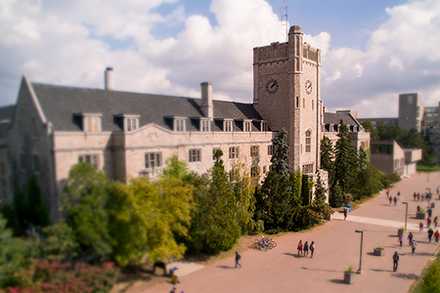Exploring the University of Guelph: Education and Community Impact

Introduction
The University of Guelph, one of Canada’s leading institutions, plays a significant role in education and community development. Established in 1964, it has grown to become a hub for innovation and research, attracting students from around the globe. As the country faces various social, economic, and environmental challenges, the relevance of universities like Guelph remains paramount in shaping the leaders of tomorrow.
Overview of the University of Guelph
Located in Guelph, Ontario, the University of Guelph offers a diverse range of undergraduate and graduate programs with a particular focus on agriculture, veterinary medicine, and the sciences. With a student population exceeding 27,000, Guelph’s commitment to experiential learning and research has distinguished it among its peers. In recent years, the university has placed an increased emphasis on sustainability and social responsibility across its academic programs and campus initiatives.
Recent Developments and Achievements
In light of the COVID-19 pandemic, the University of Guelph has adapted its teaching methods to ensure student safety while maintaining quality education. The integration of hybrid learning models and increased mental health resources for students demonstrated the university’s commitment to adapting to student needs. This proactive approach has contributed to Guelph’s reputation as a leader in student experience across Canada.
Furthermore, the university’s research initiatives have gained notable recognition. In 2023, Guelph was ranked as one of Canada’s top research universities by Research Infosource. The institution has received significant funding for various research projects, particularly in the areas of agriculture and environmental science, which are critically important to Canada’s economy.
Community Engagement and Impact
The University of Guelph is deeply intertwined with the local community. It actively engages in outreach programs, partnerships, and collaborative projects that benefit not only its students but also local residents. Initiatives like the Campus Community Garden and the Guelph Farmers’ Market exemplify the university’s commitment to enhancing community well-being and fostering sustainability.
Conclusion
The University of Guelph remains a critical player in shaping Canada’s education landscape. As it continues to evolve and respond to global challenges, the university’s focus on research, community engagement, and student success will likely enhance its prominence in the coming years. For prospective students and stakeholders, the University of Guelph represents an institution dedicated to impactful education and meaningful community involvement, promising a bright future for all who are part of its community.









